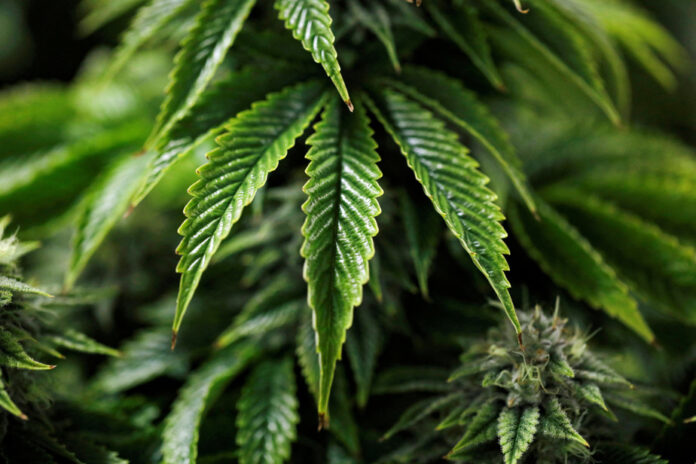(OTTAWA) Canada’s competition watchdog says the federal government should consider easing restrictions on cannabis packaging and limits on the amount of psychoactive components of cannabis that can end up in edibles.
In a brief submitted to Health Canada and a panel of experts reviewing cannabis legislation released Friday, the Competition Bureau proposed changing tetrahydrocannabinol (THC) limits and giving cannabis companies more freedom in packaging and marketing as a way to stimulate competition.
“Competition promotes business innovation, encourages value creation, and benefits consumers by providing greater choice and better quality,” he wrote in his memoir.
“It is important to note that these benefits of competition also serve to dislodge illicit activities from the market and strengthen the legal industry. »
Some observers believe that the true share of the illicit market is higher due to the stigma attached to disclosing cannabis use.
Cannabis growers and stores have long believed that THC and packaging changes would reduce the market share of illicit sellers and help them reduce the high number of layoffs, facility closures and writedowns that they have endured in recent years to keep their business afloat.
Their calls for change have grown in recent months, after Ottawa last year launched a review of the Cannabis Act, which sets purchase and possession limits and establishes safety requirements for cultivation, the sale and transportation of the substance.
When the Cannabis Legislation came into force in 2018, it included provisions preventing cannabis products from being packaged in a way appealing to young people and limiting the THC content of edibles to 10mg per package. . Illegal products often exceed this limit.
Stakeholders told the Competition Bureau that raising the limit to 100 mg “could make cannabis edibles more attractive to consumers, especially those currently sourcing from the illicit market.”
The Bureau argued that easing restrictions on cannabis promotion, packaging and labeling would also give producers more leeway to innovate and help consumers make more informed purchasing decisions.
To comply with the regulations, most cannabis companies package their products in black or white containers, devoid of eye-catching branding — something they say could help differentiate one product from another.
The Bureau also grappled with the cannabis licensing process and compliance costs, suggesting that these policies “minimally impede competition, to the extent possible.”
This process currently requires cannabis producers to have facilities nearly complete – often costing millions – before they can receive licenses. Then there are the “long and costly” security requirements and annual regulatory fees.
“By minimizing the regulatory burden of the licensing process and lowering compliance costs where possible, policymakers can reduce impediments to access and expansion, as well as stimulate a more effective competition,” the Bureau said.
The agency completes its recommendations by offering a suggestion on excise duties, an area outside the mandate of the committee charged with reviewing the scope of the law.
Duties are imposed on products when they are delivered to buyers. For dried and fresh cannabis, plants and seeds, they are highest between a flat rate of $1 per gram and a rate of 10% per gram.
For edible cannabis, cannabis extracts and cannabis topicals, the excise duty is a fixed rate based on the number of milligrams of total THC in the product. Additional fees are charged in Alberta, Nunavut, Ontario and Saskatchewan.
The total amount of unpaid excise duties on cannabis has increased since legalization, the Bureau pointed out. In September 2022, 66% of licensees required to remit excise duty had an outstanding debt with the Canada Revenue Agency, he said.
“Many stakeholders interviewed by the Bureau identified Canada’s excise duty framework – and excise duty rates in particular – as a major impediment to competition in the cannabis industry,” the brief states. .
“These stakeholders told the Bureau that the current excise duty regime makes it very difficult for the sector to be profitable and viable. »
The chief executive of producer Canopy Growth, of Smiths Falls, Ont., welcomed the Competition Bureau’s recommendations, saying they reflected many of the industry’s demands.
“Legal producers must be able to offer the range of formats and potencies that consumers are looking for to compete with the illicit market and support a sustainable cannabis industry in Canada,” David Klein said in a statement.
“It is equally essential that restrictions on engaging with consumers be reviewed to facilitate informed purchasing decisions and we hope the government acts quickly on these recommendations as time is running out. »
Organigram, a cannabis producer based in Moncton, New Brunswick, also welcomed the Bureau’s submission, in part because it believes adjustments to product THC caps are necessary.
The cap “drives consumers into the illicit market,” its CEO, Beena Goldenberg, argued in an email, while the packaging restrictions “hinder our ability as licensed producers to effectively communicate and differentiate our products”.















